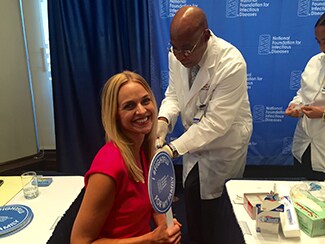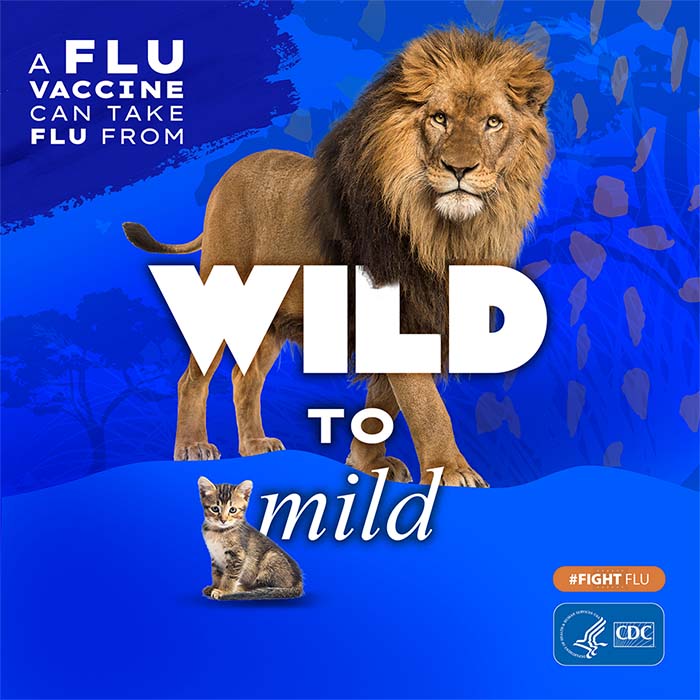Flu Fighter: Dr. Wendy Sue Swanson
Meet flu fighter Dr. Wendy Sue Swanson. Dr. Swanson is a pediatrician, blogger, media contributor, and vaccine advocate working to build trust with the public around the flu vaccine. Dr. Swanson educates parents on the importance of getting a flu vaccine for their children, dispelling myths and helping parents make healthy choices for their kids.
Name: Dr. Wendy Sue Swanson
Title: Pediatrician & Chief of Digital Innovation at Seattle Children’s Hospital
Location: Seattle, WA
Resources:
- In your role, how do you prepare for flu season each year?
My preparation is two-fold. I prioritize getting myself and two children immunized against influenza ideally before Halloween. Secondly, I create a plan for how I hope to use my platform and voice as a pediatrician, blogger, media contributor, and vaccine advocate to build trust with the public around the flu vaccine. I ask families why they hesitate to get flu vaccines and I try to build content that answers some of their hesitations or beliefs. I try to share as much science as I can. I make new content every year and I also re-purpose older content that remains relevant. Through my online platforms and diverse partnerships I strive to share important flu vaccine information every flu season. - What is the most difficult part of flu prevention?
The most difficult part of flu prevention is helping communicate that while the vaccine isn’t perfect, it’s your best shot at preventing the flu. Lots of myths out there and we know that myth-busting doesn’t work that well (people remember the myths as much as the truths) so you have to find ways to re-state and state the truths in ways that people understand. Reality is – even after getting the flu shot, you might still get the flu, but if you do, it will be a milder case and you are less likely to have complications. About 50-60% of those who get flu shots each year are protected when exposed to influenza. - Why do you think people underestimate the seriousness of flu illness?
I think it feels like someone else’s problem. And I think many people get influenza confused with all sorts of other colds and illnesses. It’s hard to understand how influenza (one single kind of virus) acts unpredictably. It’s hard for people to understand epidemics (such as 1918) or more serious or unpredictable deaths from influenza. Flu isn’t the common cold, but I think lots of people think it is. The flu can be very serious, and much more serious than the common cold. Last year during the 2016-17 season more than 100 U.S. children died of the flu, some of them otherwise healthy. Children with high-risk medical conditions such as asthma, diabetes, and certain types of cancers are at a greater risk of dying from flu complications. - Why is it important to get the flu shot every year?
The flu vaccine is an essential, every-year vaccine for everyone 6 months of age and older. On average, the vaccine is anywhere from about 50-60% effective. That means if 100 people got the shot about 50-60 people would be protected from getting the infection when exposed to influenza. When we immunize our families, we not only protect them, but we help create community immunity and support those who may not be able to get the vaccine. - What would you say to those who are hesitant about getting the flu shot?
Read some of the research online (CDC, CHOP vaccine education pages). All health interventions are a balance of risk and benefit. When it comes to flu vaccine, the research behind the prevention strategy is in favor of immunizing over not! If you don’t get the flu vaccine, you have absolutely zero additional added protection when exposed. Anywhere between 10-40% of children are exposed to influenza every year so every layer of protection helps.



